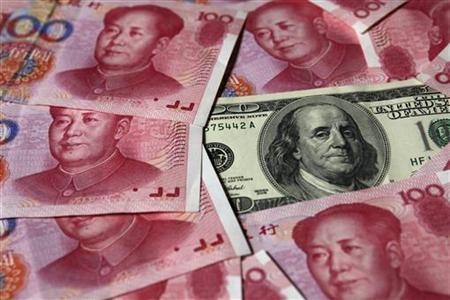From a week now, talks of United States Fed interest rate inflate and Asian Central banks interest rate cuts are going parallel.
Central bank of Asian regions seems contradicting with the policies of Federal Reserve. With more Asian banks opting for reclined monetary policies and announcing surprise cuts in interest rate this week, as reported by CNBC.
It seems like major Asian banks are contesting among themselves. Central banks in Thailand and South Korea have been seen announcing with surprise rate cuts this week and on the other end, Bank of Japan and Bank Indonesia are on announcing their policies on Tuesday. Singapore's non-oil domestic exports for February are also scheduled on Tuesday. Even China has also shown similar sign of easing monetary policy to lower their trade which will be announced later in this year, as cited by Reuters last week.
Thanks to the reduced oil cost which actually helped these Asian nations to recline monetary policy thus stimulate economic growth in the Asian markets.
It came up as a surprise last month when Bank Indonesia announced cutting rates and hoping to pitch for its second consecutive cut this week. While Bank of Japan will continue to maintain its pace of quantitative easing as though its 2 percent inflation target is still baffling.
Market experts say that due to the low oil price which exerts disinflationary effect on the consumer price index will make it difficult to reach their target, as the bank will likely to increase the asset purchasing program in the second half of this year.
This week will not only bring monetary policy decisions of many major Central Banks of Asia but also U.S. Fed will decide over to raise the interest rates by breaking its "patient" promise. As HSBC's FX strategist Dominic Bunning told CNBC last Friday that "We'll see a language change in the Fed's statement. It will drop the 'patient' language and move on to a meeting-to-meeting notion as to when they might hike rates."
Asian markets are booming fairly enough cause of lower oil prices which directly cancel out higher food inflation. If we see the economic data of last month for instance, in the case of Indian economy, the wholesale price index (WPI) has been seen creeping down making ample space for the Reserve bank of India to cut interest rates and review their policies once again as to trigger growth and investment in the market.
But in contrary, non-Asian nations such as Russia, Brazil, Mexico, Turkey and South Africa, have been constrained by high levels of debt due to sinking currencies, high inflation rate and many such economical factors.
Apparently, it is more interesting to see what the new policies Asian Central banks will adopt are and how it will be enacted by them in the long run? Will the surprise cuts affect their markets in particular or on the global front in general? And what will the Federal Reserve do? Will it go parallel with the Asian banks or review its monetary policies to suit them?
The upcoming announcements and decisions for monetary policy by the Central Banks of Asian region will resolve all the above questions this week.



























